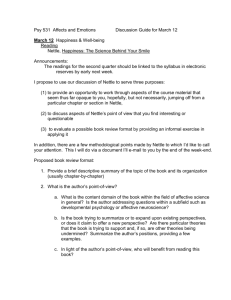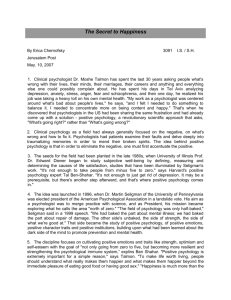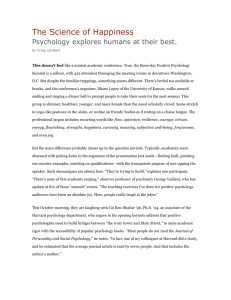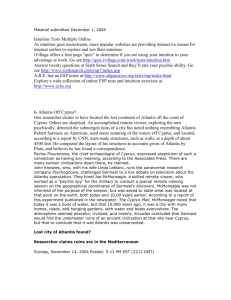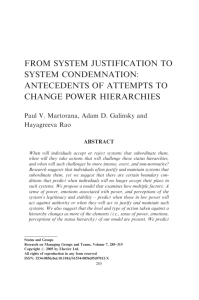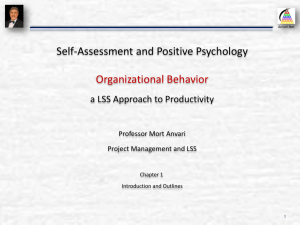P108 The Social Animal
advertisement
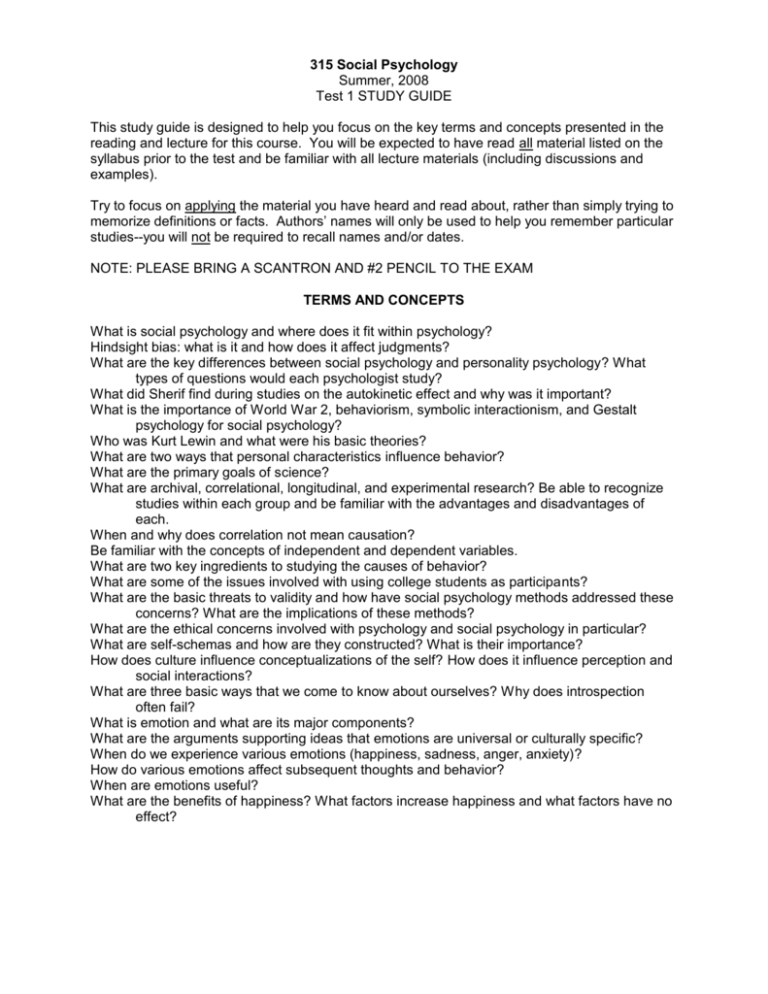
315 Social Psychology Summer, 2008 Test 1 STUDY GUIDE This study guide is designed to help you focus on the key terms and concepts presented in the reading and lecture for this course. You will be expected to have read all material listed on the syllabus prior to the test and be familiar with all lecture materials (including discussions and examples). Try to focus on applying the material you have heard and read about, rather than simply trying to memorize definitions or facts. Authors’ names will only be used to help you remember particular studies--you will not be required to recall names and/or dates. NOTE: PLEASE BRING A SCANTRON AND #2 PENCIL TO THE EXAM TERMS AND CONCEPTS What is social psychology and where does it fit within psychology? Hindsight bias: what is it and how does it affect judgments? What are the key differences between social psychology and personality psychology? What types of questions would each psychologist study? What did Sherif find during studies on the autokinetic effect and why was it important? What is the importance of World War 2, behaviorism, symbolic interactionism, and Gestalt psychology for social psychology? Who was Kurt Lewin and what were his basic theories? What are two ways that personal characteristics influence behavior? What are the primary goals of science? What are archival, correlational, longitudinal, and experimental research? Be able to recognize studies within each group and be familiar with the advantages and disadvantages of each. When and why does correlation not mean causation? Be familiar with the concepts of independent and dependent variables. What are two key ingredients to studying the causes of behavior? What are some of the issues involved with using college students as participants? What are the basic threats to validity and how have social psychology methods addressed these concerns? What are the implications of these methods? What are the ethical concerns involved with psychology and social psychology in particular? What are self-schemas and how are they constructed? What is their importance? How does culture influence conceptualizations of the self? How does it influence perception and social interactions? What are three basic ways that we come to know about ourselves? Why does introspection often fail? What is emotion and what are its major components? What are the arguments supporting ideas that emotions are universal or culturally specific? When do we experience various emotions (happiness, sadness, anger, anxiety)? How do various emotions affect subsequent thoughts and behavior? When are emotions useful? What are the benefits of happiness? What factors increase happiness and what factors have no effect?




